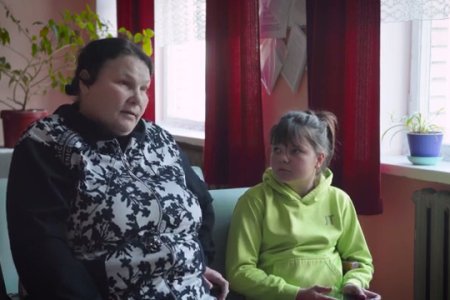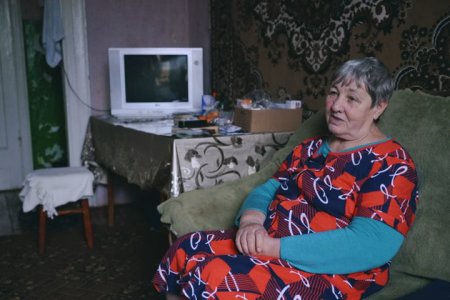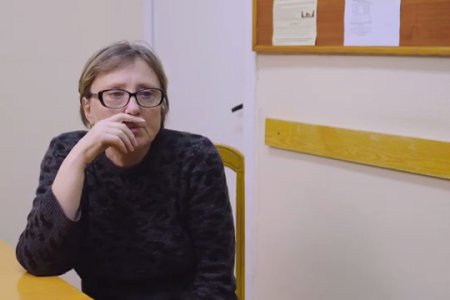Hnatenko Ivan Hryhorovych. I came from Donbass, Luhansk region, Popasna city.
How did the events of 2014 develop in your region?
These separatists set up their roadblocks. They had weapons and rifles. And then ours, together with Semen Semenchenko, came here through Oleksandrivka to Stripol, through the fields, and drove them all the way to Teplohirsk. But for some reason, ours were given the command to return. Then the second time, they were forced away to the end of Pervomayka, and ours returned to their positions again. However, the shots were heard outside the city for eight years. After that, the houses were restored, our Cheromushky was completely restored, and the sidewalks were made in the private sector. Everything has been fixed. And now, it will take fifteen years to restore it because nothing is left, and the devastation is complete.
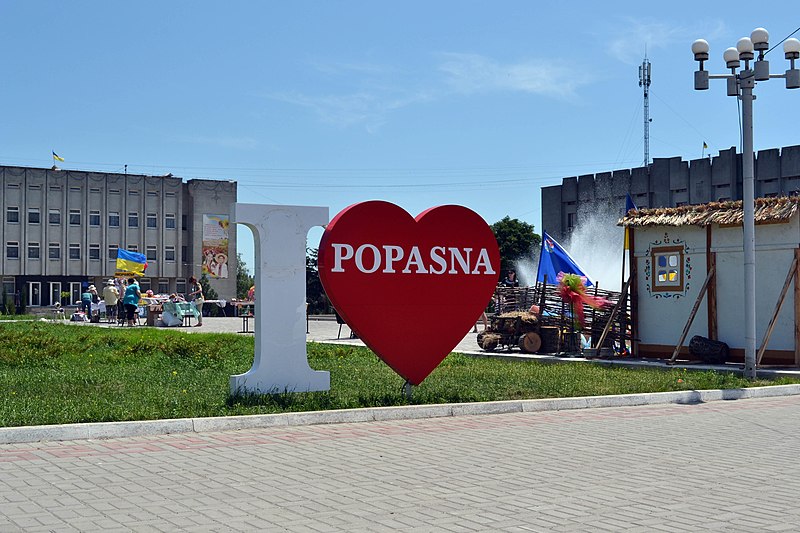
What was the beginning of a full-scale war like for you?
My son came running to me; he lives in Sadovoe, in the private sector. He was shaking: “The war has begun.” I said: “We can’t hear it in our many-story building.” Then the siren howled, and it all started — planes, helicopters, shelling. They haven’t fired at houses yet but began hitting our positions.
They used all kinds of ammunition, and then the plane bombed the city center and hit a five-story building.
A shell flew into the 6th entrance, destroying everything: the stairwell from the attic was thrown 50 meters down the basement. What kind of projectile was that? But, of course, you wouldn’t wish this on your enemy. Well, those who were not in our shoes would not understand.
Where did you hide during the shelling of the city?
Here is our building, and next is the service house with the letter “G”. There are basements there: for each room, they gave a basement with doors. The neighbor said: “This basement is empty, and this one is empty.” We were in the hallway. There was a draft, and it was cold. The neighbor brought tools; we tore off the lock, laid racks, and brought blankets from the house. Eleven of us sat there in room 2 by 1.5 [meters]. And if we wanted to eat, we went outside, kindled the grill, and took the leftovers from the refrigerators. There were plenty of wood splinters after the shelling. That’s how we survived. Initially, there was still light and water; we had a well nearby. And then the light and gas were cut off, so we sat without anything.
Was there a food problem in the city?
Volunteers brought food, and some Baptists brought semi-finished goods from Lviv. At first, they gave products orderly, but when the shooting started, they threw food in the club lobby and ran away. Well, it’s understandable.
Did you have access to medical services?
There was none. I had medication because I have high blood pressure. And if people didn’t have any medicines, they could order from a driver of an evacuation bus from Bakhmut. Otherwise, there were no medicines. So the hospital was immediately smashed, the doctors ran away, and the rescuers left. In short, we were orphaned.
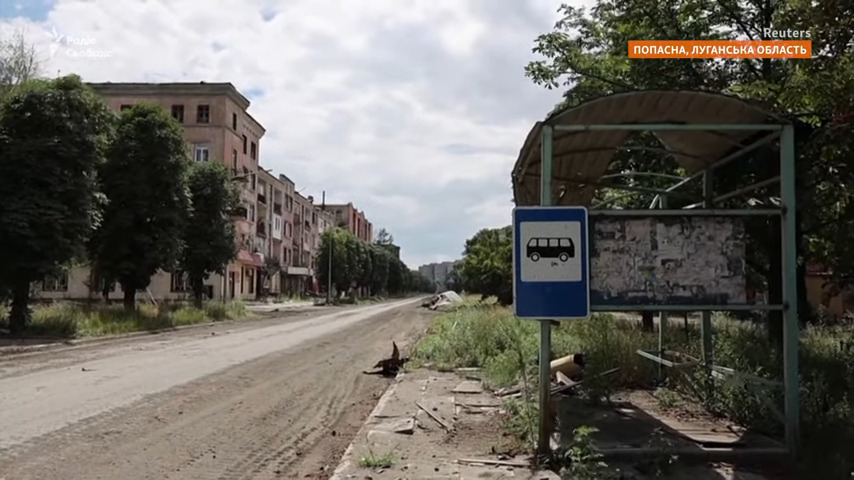
How did you evacuate the city?
We sat in the basement for 38 days. Then a shell hit the fourth floor, and a three-room apartment caught fire. Then all floors started burning, and a guy shouted: “Help!” Well, we ran out of the basements, collecting buckets of snow. However, everything flared up instantly: our 5th floor and the neighboring one lit up, and everything burned out. The children in the basement looked sick, and I said: “Go on already, you have a child; let’s go!” A granddaughter from Kharkiv came here. We waited for my sister, but she said: “I will not go alone.” The nephew was in the basement, and the sister was on Vorovsky Str. in her house. When Sasha [the nephew] showed up, I said: “Sasha, go, take your mother, collect documents, a bag, and we will run away.” Then my son-in-law called the taxi service in Bakhmut, but they didn’t want to come: “There is a shooting, we won’t get there.” So we left the basement and nearby was a railwaymen’s club with a bomb shelter.
We ran there, but they started shooting at the club. So then it quieted down a bit, and we called and waited but no taxi.
Then a guy came alone, brought bread from Bakhmut, and I said: “Listen, take us to Bakhmut.” He said: “Today, no, because I already have clients. I’ll come tomorrow”. However, the bombing started, and he did not come. So we sat, waited, and after five days, they took us to Bakhmut. We spent the night there in a hostel and went to Kramatorsk. There were evacuation trains from Kramatorsk: at 9 o’clock, the Kramatorsk-Uzhgorod train, but we did not get on it because there were many people. Then at 10 o’clock, we didn’t get in because they loaded the children and evacuated the orphanage. Finally, we boarded the third train and came here. On 9 April, we were already here.
Why didn’t you leave Popasna earlier?
Why did we wait? Because the daughter’s apartment was next to us. The houses of the son and sister were still intact. Therefore, we were staying so that the looters would not break in. However, we left when our house had already burned down, and the sons’ and sisters’ homes were destroyed.
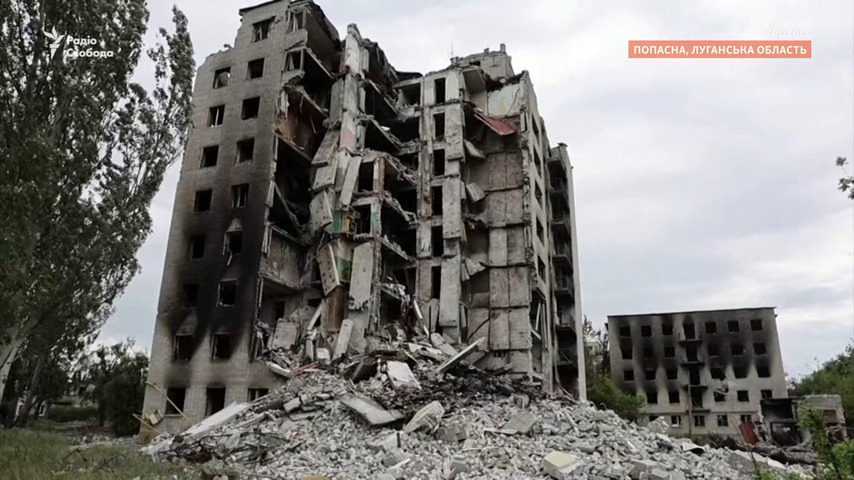
Have you witnessed the destruction of civilian facilities?
Grad [a self-propelled multiple rocket launcher designed in the Soviet Union] has a range of one kilometer; this is one unit, and there were four. Imagine how they hit! From the club to the crossroads along Lenin Street, all the houses, the market, right up to Klinov, were destroyed. The helicopter also dropped incendiary shells, or whatever they were called; the sparks flew, and everything around lit up and burned with blue flames. The city had become a ghost. When a bomb was thrown into the club, a vast indentation remained: the roof, walls, stage — everything was blown. There was a bomb shelter below, and that bastard aimed there.
Guys told us: “Don’t come out! Do not go out!” How not to go out if you need to go to the well for water?
There was a stove near our basement. A woman cooked the soup, put the kettle on, and then told her husband: “Kolya, go out and bring the kettle; it must have boiled.” So he came out, and then the Grads flew, one fragment — bang, and he died. And another woman ran to the evacuation bus; she reached the market, and then they started hitting with shells from a tank or a mortar. “Valya, Valya,” — but she was gone, and that’s it. Her son’s foot was torn off, so they bandaged him immediately on the bus and took him to the hospital in Bakhmut. So there they cut off his foot, a young guy.
And the weapons were everywhere. After all, people fled from the private sector to the bomb shelter, and the sniper fired. Then the military machine collected the corpses, and they didn’t let bury them in the cemetery because of the shooting. The excavator dug a hole in the village, and a cross was put up, so at least people were buried. But later, when the katsaps [ethnic slur for Russians] came in, it was unclear whether they took the bodies away or not... Ours took them away, but those — who knows? The people died in the open area, and so many were under the rubble in the houses.
Everything was stolen from my daughter. At first, my soul ached: my wife and I had just made so many repairs in our house, and everything burned down, and they took everything out from my daughter’s. They even ripped out the gas boiler from my son’s and took away everything: they threw away his clothes, and what was better — beds, sofas, household appliances, computers — everything was taken away.
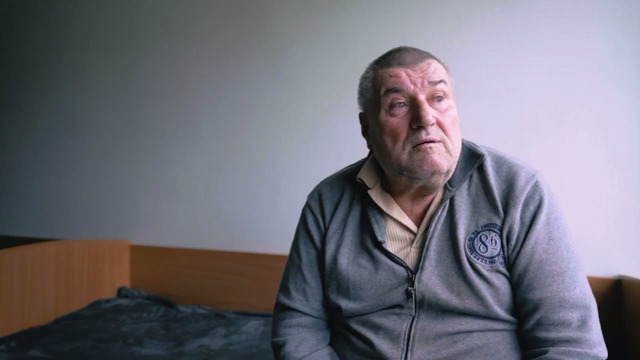
Why, in your opinion, did the Russians fire on civilians?
As he [Putin] says: “I do not kill people, I do not kill children, I remove the Nazis and expel Banderites [Ukranian nationalists].” What Nazis? What Bandera people? You’re killing all the Russian speakers. It is his [Putin’s] policy, and even now, he says: “It’s not me who destroys cities but the Ukrainian army.” He is sitting in Moscow, and I am here, but I can see who, from where, and at whom are shooting. What are you telling me? Some people are for the “Russian world” [the concept of social totality associated with Russian culture], so they say: “You had it coming."
How did the invaders treat the civilian population in Popasna?
People were taken out of Rubivka on an evacuation bus, about 28 kilometers between Popasna and Bakhmut. They drove nearly half the way, and there was a “Rafik” [a nickname for a minibus Raf-2203 Latvija] from Kyiv. A sabotage group was in the hedges and started shooting at Rafik. They took the driver away and kept him in Popasnaya. They took away his documents and then moved him to the basement in Pervomayka. He later gave interviews and said they mocked and beat him and took everything they wanted. Then he was released and asked: “How about the documents?” And the Russian replied: “Did I take them from you? Where were you received? In Popasna? That’s where you go.” So he went there, and they said: “We haven’t seen you before.” So he asked again: “How will I leave then?” Somehow they let him through the border; he drove through Poland to Ukraine and restored the documents.
Also, some older people did not leave. Maybe 200-300 people left. The Russians took them to Pervomayka and put a potbelly stove in the basement. I know a deceased friend’s wife in Pervomayka. Yesterday, I talked to her, and she said: “They bring soup, which even a dog does not eat. What are they making it out of? But people still need something to eat. In short, they are hyenas, not people ...
How can we coexist with Russia after the victory?
We have to put up a wall, as we put up a wall with Bilorus. Not the one that Yatseniuk built, but as shown in Zhytomyr and Rivne. I think Russia will break up into small parts. If Europe continues to keep sanctions as it is now, it will fall apart.

